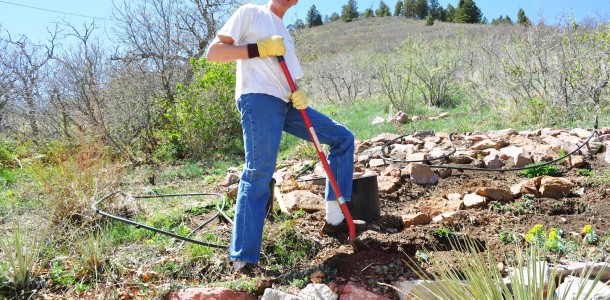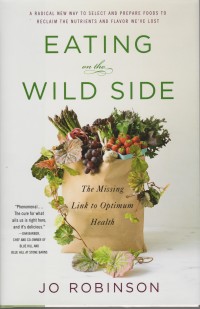At one point she called up to me, and as I stopped and looked up, she snapped a picture. The thought crossed my mind that this was not unlike a politician posing at a construction site–somehow taking credit for all the hard work someone else has done. See all those rocks behind me? My wife went out in the car, found them and brought them home, carried them up onto the hillside, and placed them around the beds she dug last year. Okay, I did help a little, but she did nearly all the work–and by nearly, I mean 99%. I vowed to do more this year, but I’ve been so taken up with my next book and my new webinar, well, what an excellent excuse for staying indoors!
Yesterday was truly the first day of spring here, not yet hot, but clearly with the scent of budding life. The outdoors had finally begun to beckon convincingly. So this was obviously the time for me to pick up the shovel and match action to words. Maybe that’s why she took the picture–she couldn’t believe her eyes! Just kidding.
Back when I was studying Aikido (before the marit-al arts took me over), I read that O’Sensei–the founder of Aikido–used to recommend that all martial artists also take time to be gardeners. The idea, as I understood it, was that being solely a warrior tends to corrupt the mind, tilting one too far to the yang side of things, and making one arrogant. In order to bring one’s spirit into balance and maintain a wise, calm character, he felt it was important to get in touch with the nurturing aspect of a man’s nature, to spend time growing and building things, and be humbled by understanding how fundamentally we all rely on farmers for our very existence.
After the holes were dug, we went out and found dozens of rocks to shore them up–an essential step if you don’t want everything to wash down the hill the first time it rains. The afternoon flew by, and last night I slept better than I had in months.
I know I’ll never be a gardener like my wife is, but just being out there with her I get an inkling of what O’Sensei had in mind. I’m a cook, and a writer, and for me it’s important to get my hands in the dirt a little, to see and feel the connection between what appears to have so little value–dirt–and exactly the stuff my blood and bones are made of. Over and over again, as long as I’m alive, each cell in my body will die off and be replaced by a new one, constructed with building blocks that come out of the earth, into plants, and into me. A warrior without this reverence for life, this understanding of his true place in the overall scheme of life, or a sense of wonder at the unstoppable beauty of it all, is no more than an ignorant barbarian–skilled at killing, but clueless at living.
.








Alan I love your blog- a beautiful achievement, and I will be inspired to reach for higher levels of inspiration when thinking of food- I love your combining pictures, stories and recipes.The rock garden has the beginnings of something beautiful!What a great combination of talents you share with your wife! Yes, the yin and yang of life requires balance, and health is the fruit. I love practicing acupuncture to bring balance to the whole person…..it is amazing. But food is a way we can have that every day. Your theme of Ascent is perfect in these Ascending times, as our bodies need to lighten up!
I love this! Work it!
What a great site. This blog struck a cord with me. I started gardening and cooking in my early teens. It was cool to learn what Sensei had to say. When I moved to the city I missed home bad until I discovered the local Community Garden. It is my place of peace. I look forward to reading and learning more from you.
Namaste.
Thanks, Greg! Do you practice Aikido? It’s been many years for me, but I think it will always be with me.